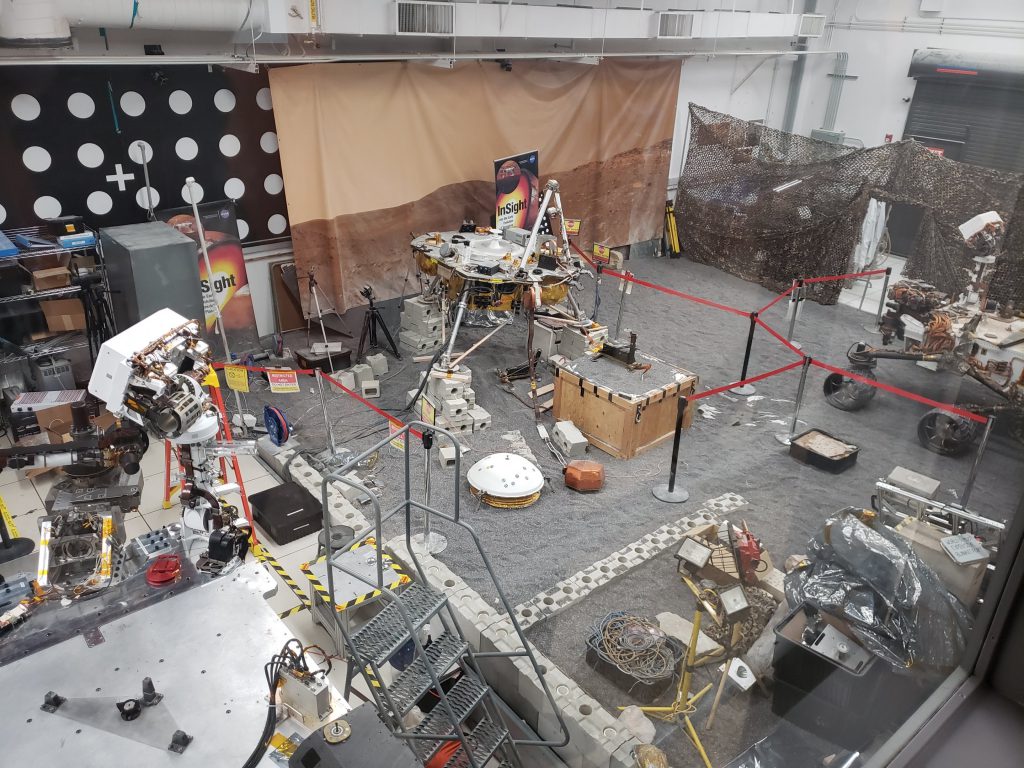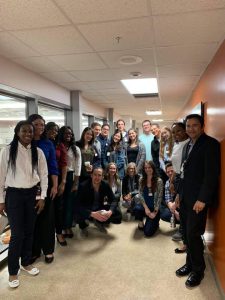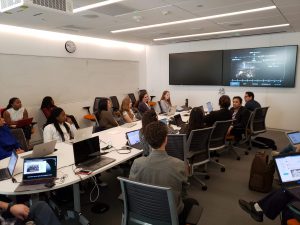 So this last week, we ran a workshop on bacterial genomics at the Jet Propulsion Laboratory (JPL). Who is “we”? An amazing collaboration across several institutions. The whole thing was initiated by Dr. Parag Vaishampayan (NASA-JPL), who contacted myself (UC Davis), Dr. Elinne Becket (Cal State San Marcos), and Dr. Kenisha Johnson (Alabama A&M) about applying for funding for a workshop aimed at teaching undergraduates about bacterial genomics, within a planetary protection context. We got the grant and organized the workshop, along with the critical assistance of Guillaume Jospin from Jonathan Eisen’s lab and Mike Lee from NASA-Ames. With about 15 undergraduates, a couple Masters students, and a couple professors we had an amazing two days.
So this last week, we ran a workshop on bacterial genomics at the Jet Propulsion Laboratory (JPL). Who is “we”? An amazing collaboration across several institutions. The whole thing was initiated by Dr. Parag Vaishampayan (NASA-JPL), who contacted myself (UC Davis), Dr. Elinne Becket (Cal State San Marcos), and Dr. Kenisha Johnson (Alabama A&M) about applying for funding for a workshop aimed at teaching undergraduates about bacterial genomics, within a planetary protection context. We got the grant and organized the workshop, along with the critical assistance of Guillaume Jospin from Jonathan Eisen’s lab and Mike Lee from NASA-Ames. With about 15 undergraduates, a couple Masters students, and a couple professors we had an amazing two days.
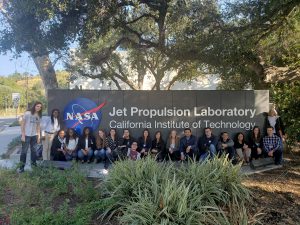 The goal here was to teach the basics of Planetary Protection, including about the spacecraft assembly facility isolates that they collect and store at JPL. We then explored the basics of Unix and the command line, moving into doing the actual trimming, QC, assembly, and validation of the assemblies. The students then uploaded their genomes to RAST, learned how to explore the annotation and then on the second day of the workshop we drafted a data announcement paper for submission soon to Microbiology Resource Announcements. Every student did the work themselves, including every command line steps… but they worked together in groups to help anyone who got stuck. The process wasn’t flawless, but we did get through almost everything we planned (we did have to drop the section on phylogenetic trees, apologies to Jonathan Eisen. :)
The goal here was to teach the basics of Planetary Protection, including about the spacecraft assembly facility isolates that they collect and store at JPL. We then explored the basics of Unix and the command line, moving into doing the actual trimming, QC, assembly, and validation of the assemblies. The students then uploaded their genomes to RAST, learned how to explore the annotation and then on the second day of the workshop we drafted a data announcement paper for submission soon to Microbiology Resource Announcements. Every student did the work themselves, including every command line steps… but they worked together in groups to help anyone who got stuck. The process wasn’t flawless, but we did get through almost everything we planned (we did have to drop the section on phylogenetic trees, apologies to Jonathan Eisen. :)
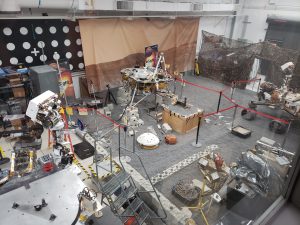
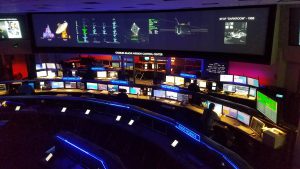 In addition to the work, we got to tour JPL which was fantastic! We got to the see Mission Control (a.k.a. the Center of the Universe), the museum there, the Spacecraft Assembly Facility, and the Mars rover testing area. All of the materials associated with the workshop are available online at our workshop wiki page, definitely worth checking out for anyone interesting in running this kind of workshop.
In addition to the work, we got to tour JPL which was fantastic! We got to the see Mission Control (a.k.a. the Center of the Universe), the museum there, the Spacecraft Assembly Facility, and the Mars rover testing area. All of the materials associated with the workshop are available online at our workshop wiki page, definitely worth checking out for anyone interesting in running this kind of workshop.
I would like to particularly call out the amazing resources that Mike Lee has collected on his website (Happy Belly Bioinformatics), which is a gold mine for teaching bioinformatics to beginners. Any time I ever do anything like this again, that’s where I’m going to start!
Thanks again to all the organizers for their hard work and to all the amazing students and visitors that attended the workshop!
